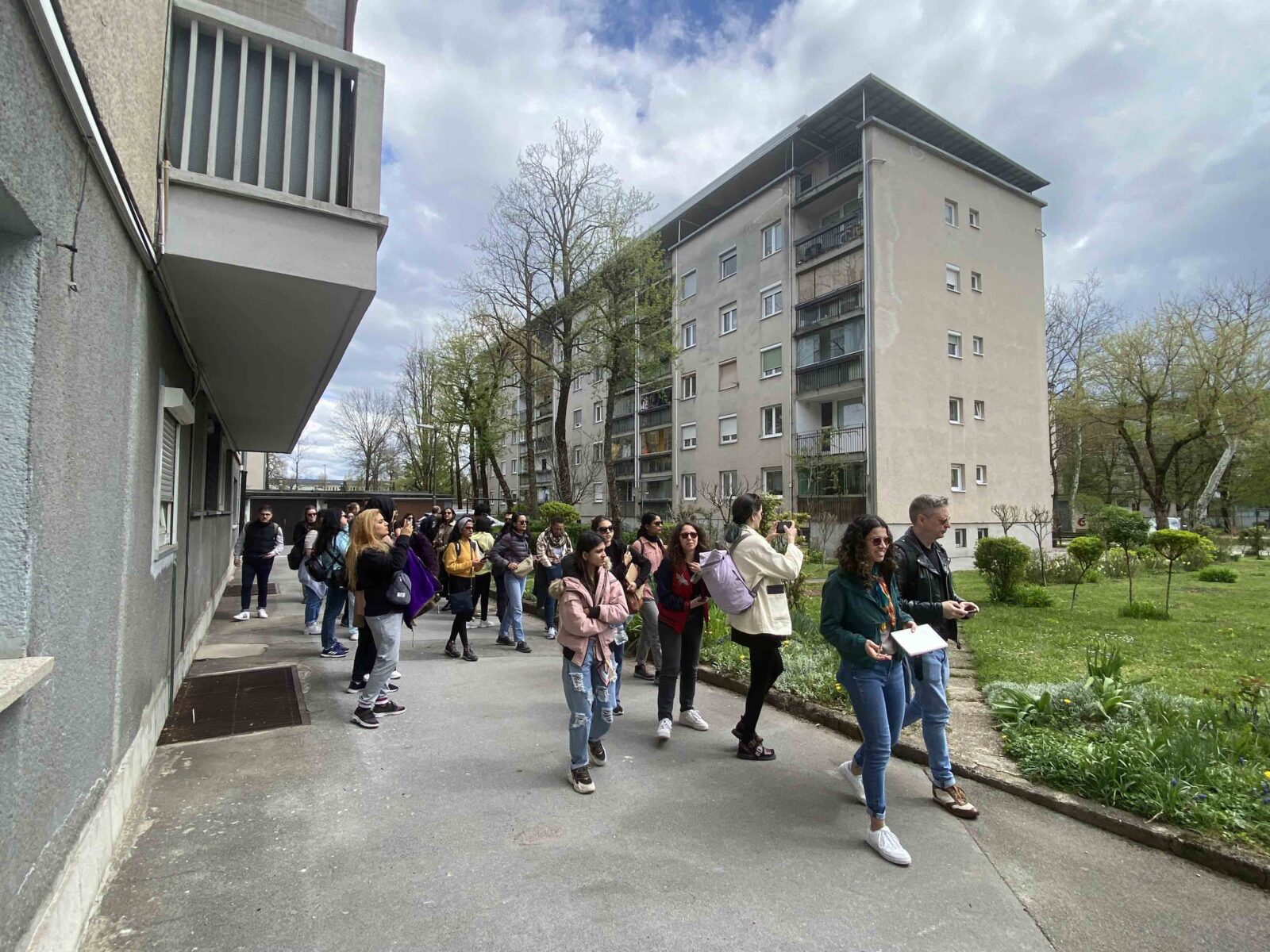MA International Planning and Sustainable Development Private: Welcome to MORE 2023

MAIPSD + MAUD students visiting socialist council estates in Ljubljiana
Tony Lloyd-Jones (Course Leader), Krystallia Kamvasinou (Dissertation Module Leader) Giulio Verdini, Roudaina Al Khani, Andrew Boughton, Jim Coleman, Bill Erickson, Jeff Howard, Ripin Kalra, Sebastian Loew, David Mathewson, Johannes Novy, Federico Redin, David Seex, Abubokkar Siddiki, Ian Simpson, John Somers, Mireille Tchapi
Tony Lloyd-Jones is an architect, urban designer and planner involved in international development research and practice. He is Reader in International Planning and Sustainable Development and Director of Research and Consultancy at the Max Lock Centre.
Giulio Verdini is Reader in Urban Planning at the School of Architecture + Cities, and Visiting Professor at Mohammed VI Polytechnic University, Morocco. His research explores cultural sustainability and socially innovative territorial development in the context of fast urbanising countries.
Krystallia Kamvasinou is a senior lecturer, an architect and a landscape architect. Her research on the topic of Interim Spaces and Creative Use has been published widely in academic journals and books.
THIS COURSE EXPLORES contemporary theories, policy and practice in planning and urban design for sustainable, inclusive and resilient development in cities, regions and communities in a rapidly urbanising world. It spans both developed and developing world contexts, in locations facing a wide range of growing climate change and other environmental, economic and social pressures and risks.
Structured around written assignments and studio- based projects undertaken in group workshops, which are supported by lectures, seminars, tutorials and site visits, the course is grounded in three core modules: Planning in a Globalising World; International Spatial Planning Practice; and Sustainable Neighbourhood Development. Students can then choose to follow one of two pathways: Spatial Planning has a strong urban design component and an emphasis on development planning; alternatively, the Urban Resilience pathway provides a sustainable development-focused route with a core emphasis on climate change risks, adaptation planning and natural hazard risk management.
Guest Critics: Darshana Chauhan (Co Plug), Martyn Clark (Tripleline), Nandini Dasgupta, Yann Leclerc (Dar Group), Geoff Payne (Geoffrey Payne Associates), Robert Sadlier
Special Thanks: Camillo Boano (DPU), Angelique Chettiparamb (University of Reading), Malcolm Moor, Michael Mutter, Marion Roberts, Olivier Sykes (University of Liverpool), Pat Wakely (DPU Associates), Ya Ping Wang (University of Glasgow)
The course is aligned with the UN’s Sustainable Development Goals and New Urban Agenda and we are a Habitat Partner University. The curriculum draws on the hands-on experience of the Max Lock Centre, an international development unit that has been actively involved in action- and policy-focused research across the developing world since 1995.
MAIPSD is aimed at international, UK and EU students with a relevant background who wish to gain an in-depth understanding of planning and sustainable development, whether to improve career prospects in their country or enter UK or international practice.The course is fully accredited by the Royal Town Planning Institute (RTPI) as a ‘combined planning programme’. Graduates from this course find employment as planners and urban designers, urban regeneration or environmental management specialists in private consultancy, local and national government, and non-governmental sectors in their own country or internationally, including international development agencies and financial institutions.
Students:
- Hajira Anjum
- Elaheh Behrouzinia
- Maryam Khurram
- Rukmini Gotmare
- Ana Lopes Santos
- Namrata Menon
- Dorisa Mirzai
- Dylan Rodrigues
- Sumitra Simkhada
- Fathima Sumayya
- Thi To
